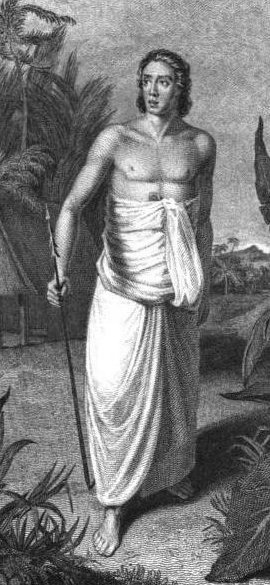Tonga
Tonga, officially known as the Kingdom of Tonga, is a Polynesian country and archipelago comprising 169 islands, of which 36 are inhabited. The total surface area is about 750 square kilometers scattered over 700,000 square kilometers of the southern Pacific Ocean. The sovereign state has a population of around 100,000 people, of whom more than 70% reside on the main island of Tongatapu.
Geography[edit | edit source]
Tonga is situated east of Fiji, south of Samoa, and north of New Zealand. Its climate is tropical with a distinct warm period (December to May), followed by a cooler period (May to December). The archipelago is divided into four main groups: Tongatapu, Ha'apai, Vava'u, and the Niuas, each with unique geographical and cultural features. Tongatapu, being the main island, hosts the capital city, Nuku'alofa, which is the center of commerce and government.
History[edit | edit source]
The history of Tonga is rich and dates back to around 500-1000 AD with the first settlement by Polynesians. Tonga became known as the "Tongan Empire" or "Tu'i Tonga Empire" at its zenith, exerting influence over neighboring islands, including parts of Fiji, Samoa, and Niue. The first Europeans to visit were the Dutch explorers Willem Schouten and Jacob Le Maire in 1616, followed by the British Captain James Cook in the 18th century, who referred to Tonga as the "Friendly Islands" due to the hospitable reception he received.
Politics[edit | edit source]
Tonga is a constitutional monarchy with a unique blend of traditional Polynesian influences and modern political structures. The king has executive powers, while the legislative assembly, a unicameral parliament, consists of members elected both by the populace and those appointed by the monarch. Tonga's political history has been marked by moves towards greater democracy, including the reduction of the monarchy's powers in 2010, enhancing the role of the elected members of parliament.
Economy[edit | edit source]
The Tongan economy is relatively small, with a heavy reliance on remittances from the diaspora, agriculture, and tourism. Key agricultural products include coconuts, vanilla beans, and bananas. The country also benefits from financial assistance from other nations and international organizations. In recent years, there has been a push to develop the tourism sector to diversify the economy and reduce dependence on remittances.
Culture[edit | edit source]
Tongan culture is deeply rooted in its Polynesian heritage, characterized by respect for tradition, family, and religion. Christianity plays a significant role in societal values and daily life. Traditional arts such as weaving, wood carving, and tattooing are highly valued. Tongan music and dance are integral to celebrations and festivals, with the kava ceremony being a notable cultural ritual.
Demographics[edit | edit source]
The majority of Tonga's population is of Polynesian descent, with a small mixture of Melanesian, European, and East Asian influences. English and Tongan are the official languages, with Tongan being the most widely spoken among the locals. The population is predominantly Christian, with the Free Wesleyan Church of Tonga being the largest denomination.
Challenges[edit | edit source]
Tonga faces several challenges, including vulnerability to climate change due to its low-lying islands, economic dependency on remittances, and the need for sustainable development. Efforts are being made to address these issues through international aid, sustainable practices, and economic reforms aimed at enhancing resilience and promoting growth.
Transform your life with W8MD's budget GLP1 injections from $125
W8MD offers a medical weight loss program NYC and a clinic to lose weight in Philadelphia. Our W8MD's physician supervised medical weight loss centers in NYC provides expert medical guidance, and offers telemedicine options for convenience.
Why choose W8MD?
- Comprehensive care with FDA-approved weight loss medications including:
- loss injections in NYC both generic and brand names:
- weight loss medications including Phentermine, Qsymia, Diethylpropion etc.
- Accept most insurances for visits or discounted self pay cost.
- Generic weight loss injections starting from just $125.00 for the starting dose
- In person weight loss NYC and telemedicine medical weight loss options in New York city available
- Budget GLP1 weight loss injections in NYC starting from $125.00 biweekly with insurance!
Book Your Appointment
Start your NYC weight loss journey today at our NYC medical weight loss, and Philadelphia medical weight loss Call (718)946-5500 for NY and 215 676 2334 for PA
Search WikiMD
Ad.Tired of being Overweight? Try W8MD's NYC physician weight loss.
Semaglutide (Ozempic / Wegovy and Tirzepatide (Mounjaro / Zepbound) available. Call 718 946 5500.
Advertise on WikiMD
|
WikiMD's Wellness Encyclopedia |
| Let Food Be Thy Medicine Medicine Thy Food - Hippocrates |
Translate this page: - East Asian
中文,
日本,
한국어,
South Asian
हिन्दी,
தமிழ்,
తెలుగు,
Urdu,
ಕನ್ನಡ,
Southeast Asian
Indonesian,
Vietnamese,
Thai,
မြန်မာဘာသာ,
বাংলা
European
español,
Deutsch,
français,
Greek,
português do Brasil,
polski,
română,
русский,
Nederlands,
norsk,
svenska,
suomi,
Italian
Middle Eastern & African
عربى,
Turkish,
Persian,
Hebrew,
Afrikaans,
isiZulu,
Kiswahili,
Other
Bulgarian,
Hungarian,
Czech,
Swedish,
മലയാളം,
मराठी,
ਪੰਜਾਬੀ,
ગુજરાતી,
Portuguese,
Ukrainian
Medical Disclaimer: WikiMD is not a substitute for professional medical advice. The information on WikiMD is provided as an information resource only, may be incorrect, outdated or misleading, and is not to be used or relied on for any diagnostic or treatment purposes. Please consult your health care provider before making any healthcare decisions or for guidance about a specific medical condition. WikiMD expressly disclaims responsibility, and shall have no liability, for any damages, loss, injury, or liability whatsoever suffered as a result of your reliance on the information contained in this site. By visiting this site you agree to the foregoing terms and conditions, which may from time to time be changed or supplemented by WikiMD. If you do not agree to the foregoing terms and conditions, you should not enter or use this site. See full disclaimer.
Credits:Most images are courtesy of Wikimedia commons, and templates, categories Wikipedia, licensed under CC BY SA or similar.
Contributors: Prab R. Tumpati, MD







